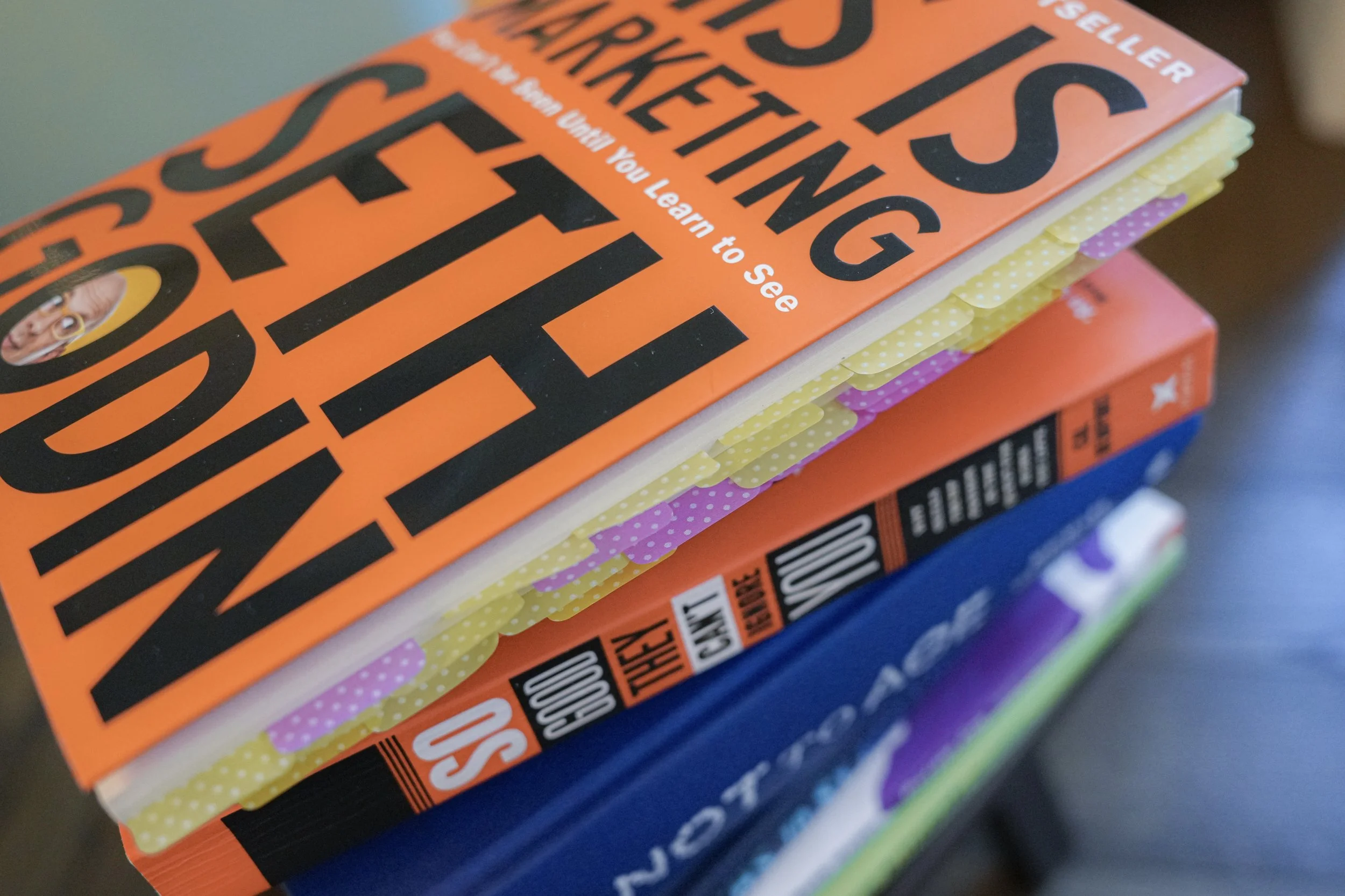(#037) This Is Marketing (So He Said.)
Why Complaining About Short Attention Spans Doesn't Work
⏱️ 5 min read
I had never heard of Seth Godin until June 15th.
He’s the author of 21 worldwide bestsellers, translated into 36 languages (I can’t even name 36 languages), writes a blog with over a million readers, hosts a top-ranked podcast with 200+ episodes, and—lest anyone think he only talks—has built and sold multiple multi-million-dollar companies.
The joke was on me.
I was introduced to him by someone who calls himself a photographer, yet has played his cards as far more than “just” a photographer. I hold him in such high regard that I once spent an entire day studying his life and career strategy (as I mentioned here).
Godin’s “This Is Marketing” overflow with frameworks, anecdotes, and insights—far more than you can absorb in a single read.
If you asked an honest AI to condense his book without cutting anything of value, it could only respond by shrinking the font.
Every paragraph feels essential. (With 32 dog-eared pages, it ranks in the top 10% of my library for how heavily I’ve noted and marked it up.)
Of course, not every great idea sticks right away. Some fade in the days after.
But one idea hit me instantly, like a light switching on. It changed how I think about marketing, media, and especially social media. And it keeps coming back—whenever I reflect on news, promotion, and the work of making a product or service matter to an audience.
“[The marketer] has the humility to embrace the lack of time and attention that her audience wrestles with every day.”
(Italics mine.)
It may seem merely common sense, and yet, how many times have we complained about “short attention spans”—whether of this generation, the previous one, and certainly the next?
How many times have we rolled our eyes at the fact that a message might get only a few seconds of attention, if that—and even then, everyone sees something different, rarely pausing to understand what was truly intended?
Me? Often. (Here’s one example.)
But Godin’s words reframed it. They made me feel more gracious, more at peace with the reality of the matter.
Attention is a scarce currency. Everyone gets 24 hours of it—no matter their wealth, power, or status. Deciding how to spend it is not only one of the hardest choices we face, it is also a high-stakes one.
Spend it well, and you may grow wealthier, richer in knowledge, sharper in skill, healthier in mind and body.
Spend it poorly, and the edge dulls faster than you think.
For an entrepreneur—or anyone with a message—complaining about distraction is like a personal trainer complaining that clients are out of shape.
That’s the job. People don’t need complaints. They need a workout plan that works.
L.F
(Read this article on Medium)

